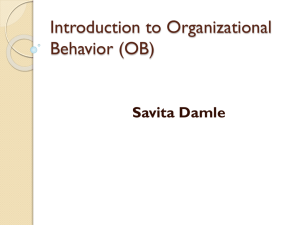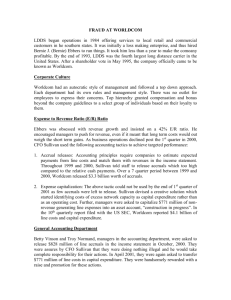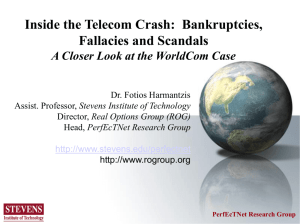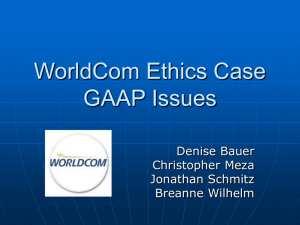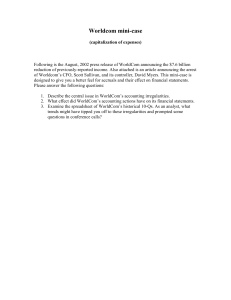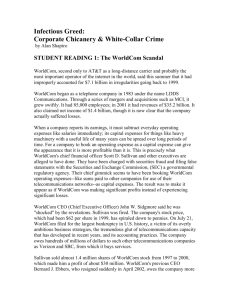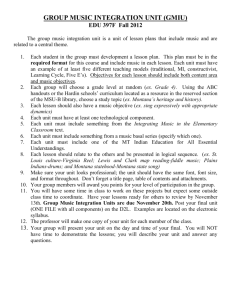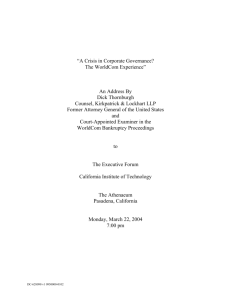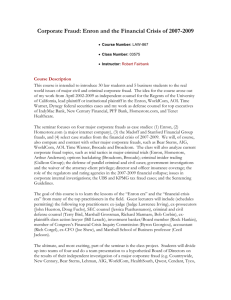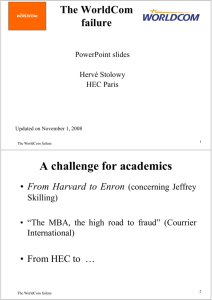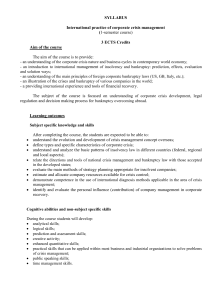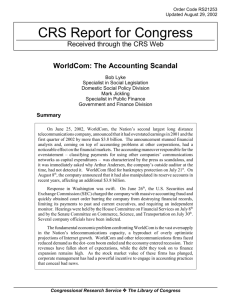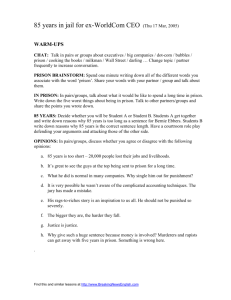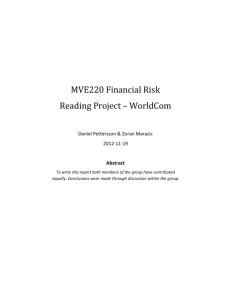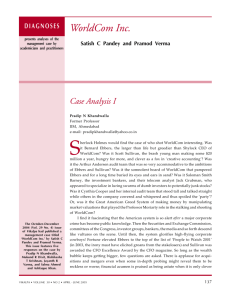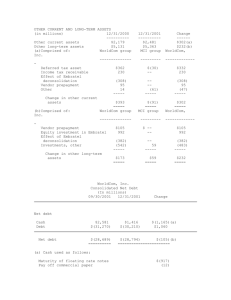MPR: WorldCom Bankruptcy - the Montana Telecommunications
advertisement
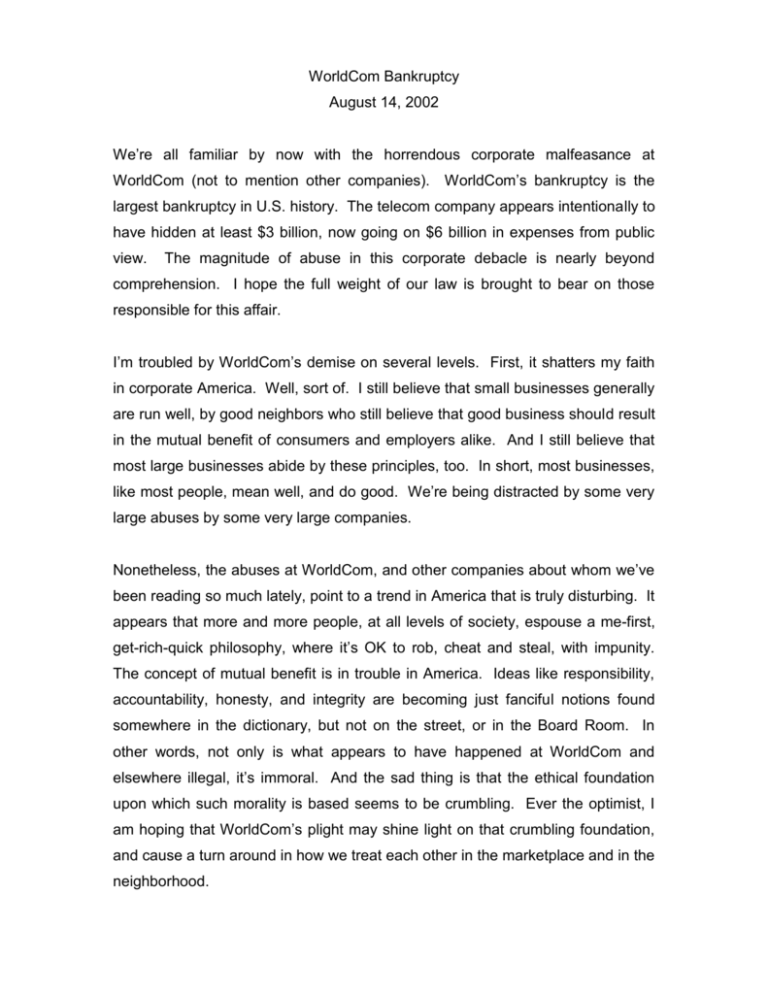
WorldCom Bankruptcy August 14, 2002 We’re all familiar by now with the horrendous corporate malfeasance at WorldCom (not to mention other companies). WorldCom’s bankruptcy is the largest bankruptcy in U.S. history. The telecom company appears intentionally to have hidden at least $3 billion, now going on $6 billion in expenses from public view. The magnitude of abuse in this corporate debacle is nearly beyond comprehension. I hope the full weight of our law is brought to bear on those responsible for this affair. I’m troubled by WorldCom’s demise on several levels. First, it shatters my faith in corporate America. Well, sort of. I still believe that small businesses generally are run well, by good neighbors who still believe that good business should result in the mutual benefit of consumers and employers alike. And I still believe that most large businesses abide by these principles, too. In short, most businesses, like most people, mean well, and do good. We’re being distracted by some very large abuses by some very large companies. Nonetheless, the abuses at WorldCom, and other companies about whom we’ve been reading so much lately, point to a trend in America that is truly disturbing. It appears that more and more people, at all levels of society, espouse a me-first, get-rich-quick philosophy, where it’s OK to rob, cheat and steal, with impunity. The concept of mutual benefit is in trouble in America. Ideas like responsibility, accountability, honesty, and integrity are becoming just fanciful notions found somewhere in the dictionary, but not on the street, or in the Board Room. In other words, not only is what appears to have happened at WorldCom and elsewhere illegal, it’s immoral. And the sad thing is that the ethical foundation upon which such morality is based seems to be crumbling. Ever the optimist, I am hoping that WorldCom’s plight may shine light on that crumbling foundation, and cause a turn around in how we treat each other in the marketplace and in the neighborhood. On a more practical level, I’m troubled by the ease with which WorldCom and others can escape responsibility and accountability by filing for bankruptcy protection. It is here that the bankruptcy of WorldCom, Global Crossing and others may have much longer term, negative effects on the economy in general and on Montana’s local telecom companies in particular. Here in Montana, WorldCom stopped paying its bills months ago to independent phone companies. These bills are substantial and payment of them is crucial to the survival of rural telephone companies. One of the main sources of revenue for these small companies is the fees they charge to long distance companies for terminating calls on their local networks. These are called access charges. Access charge revenues dwarf any revenues that these local companies receive directly from their subscribers. Thus, reduction in access revenues dramatically affects returns on investment, and threatens significant rate increases. As I said, WorldCom has stiffed these companies for months, with hundreds of thousands of dollars of unpaid bills. That’s real money that is not coming into Montana for reinvestment in Montana’s economy. Under normal circumstances, a company would discontinue service to a customer who fails to pay its bills. But under bankruptcy protection, Montana’s telcos must continue to provide service to WorldCom. To make matters worse, WorldCom’s bankruptcy petition classifies these rural companies as “utilities,” like water, sewer, or electricity suppliers, instead of contractors providing a vital service to WorldCom. This classification effectively places Montana’s telcos lower on the ladder for any potential repayment of past or current debts. So for Montana’s independent phone companies, there’s little likelihood they’ll ever recover what’s owed to them. There’s even less likelihood if WorldCom succeeds in putting them at the end of the line. And worse still is the fact that these companies effectively are precluded from taking any remedial action while WorldCom is under bankruptcy protection. The perverse moral of the story here is that well run, responsible, ethical companies are left holding the bag, while the unethical cheats get to turn to the Court for protection against the very market forces they so blatantly spurned. The abuse doesn’t end here, either. WorldCom may emerge from bankruptcy without any debt—the very debt it unethically buried in the first place will be simply wiped off the books. Thus, they’ll come back ready to do business, but without any of the normal burdens that the rest of its better-run competitors have. Essentially, they’ll be rewarded for failing to run their company, while so-called successful companies who don’t file for bankruptcy protection will be punished. Twice. First, they’ll be punished by having somehow to absorb WorldCom’s debts, and then they’ll be punished again by having to compete with a newly restored, freshly painted WorldCom, “protection.” Now there’s justice for you! Contact: Geoff Feiss, General Manager Montana Telecommunications Association Helena, Montana 406.442.4316 gfeiss@telecomassn.org courtesy of so-called bankruptcy
